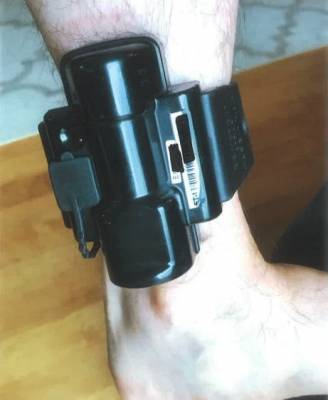Recent Blog Posts
Wisconsin Supreme Court Elections to Be Held April 2
 The highest court in the state, the Wisconsin Supreme Court, will soon get a new justice following the April 2 election. The election is for the seat currently held by Justice Shirley Abrahamson.
The highest court in the state, the Wisconsin Supreme Court, will soon get a new justice following the April 2 election. The election is for the seat currently held by Justice Shirley Abrahamson.
Justice Abrahamson decided not to run for re-election. After the primaries, two judges emerged as the candidates in the general election: Appeals Judge Brian Hagedorn and Appeals Chief Judge Lisa Neubauer. The winning candidate will clinch a 10-year term on the high court.
The Composition of the Wisconsin Supreme Court
While the Wisconsin Supreme Court is not political, some justices are considered conservative and some are considered liberal by court watchers. This election could change the makeup of the court, which would have far-reaching consequences.
As the court stands now, there are four justices who are considered to be conservative and three who are considered liberal. Justice Abrahamson, the outgoing judge, has been supported by liberals.
Pursuing Compensation for a Family Member's Wrongful Death
 If your loved one has died due to the fault of another person or business, Wisconsin law states that you may be able to recover certain monetary damages through a wrongful death lawsuit.
If your loved one has died due to the fault of another person or business, Wisconsin law states that you may be able to recover certain monetary damages through a wrongful death lawsuit.
Who Can Recover Compensation?
Wisconsin law only allows certain people to bring wrongful death actions, and it also dictates certain parties who must recover any award of damages in wrongful death actions. Those who may bring a wrongful death action include:
- The personal representative of the deceased person's estate
- The surviving spouse of the decedent
- The domestic partner of the decedent
- The child of the decedent
- The parent or guardian of the decedent
If the decedent left behind a spouse, domestic partner, or one or more children under age 18, the court will set aside a part of any award for the care of the deceased person's dependents. The amount will not be more than 50 percent of the total award.
College Admissions Scandal Ends With Criminal Fraud Charges
 In March 2019, a college admissions cheating scandal made headlines nationwide. According to prosecutors, wealthy parents of children seeking admission to some of the country’s top schools used the services of a man who would either bribe college employees or would help students cheat on standardized tests.
In March 2019, a college admissions cheating scandal made headlines nationwide. According to prosecutors, wealthy parents of children seeking admission to some of the country’s top schools used the services of a man who would either bribe college employees or would help students cheat on standardized tests.
The college admissions scam is thought to be the biggest one ever prosecuted in this country. The FBI alleges that some of the accused parents spent between $200,000 and $6.5 million to get their children into select universities. Schools such as Yale, the University of Southern California, Georgetown, and Stanford are alleged to have unknowingly accepted students as part of this illegal scheme.
The scam’s architect, William Rick Singer, has already pled guilty to charges of conspiracy to commit racketeering, conspiracy to commit money laundering, conspiracy to defraud the United States, and obstruction of justice.
Milwaukee to Host the 2020 Democratic National Convention
 Recently, the news broke that the 2020 Democratic National Convention will be held in Milwaukee. City and state government leaders campaigned heavily to have Milwaukee selected as the location for the convention, which will bring an influx of visitors to the area and put Milwaukee in the national spotlight.
Recently, the news broke that the 2020 Democratic National Convention will be held in Milwaukee. City and state government leaders campaigned heavily to have Milwaukee selected as the location for the convention, which will bring an influx of visitors to the area and put Milwaukee in the national spotlight.
The convention will take place July 13-16, 2020, and Fiserv Forum will serve as the convention’s hub. The key purpose of the convention is to vote on who will be the Democratic presidential nominee in the 2020 election. Conventions are also used as an opportunity for the party to solidify its positions on political issues as well as to boost morale.
Houston and Miami were among the finalists to host the DNC in 2020. Milwaukee has never hosted a major party convention, and this will be the first Democratic convention held in the Midwest since 1996, when Chicago hosted the event.
How Can I Determine the Value of Business Assets During My Divorce?
 If you are a business owner going through a divorce, it is critical that you understand the laws surrounding community property and asset division and how they relate to your company. For many people, a business is considered community property, which means that both spouses own the business under Wisconsin law. This is true even if only one spouse is involved in the business.
If you are a business owner going through a divorce, it is critical that you understand the laws surrounding community property and asset division and how they relate to your company. For many people, a business is considered community property, which means that both spouses own the business under Wisconsin law. This is true even if only one spouse is involved in the business.
If a business will be classified as community property, it must be properly valued so that business assets can be divided during divorce. It is possible that the spouse who is more involved with the business will retain ownership, and the other spouse will receive different marital assets of an equal value.
Legal Problems With Retroactive Lifetime GPS and Sex Offender Reporting
 In Wisconsin, persons who have been convicted of felony sex offenses are required to register as sex offenders for either fifteen (15) years or, for some types of convictions, lifetime registration. Sex offenses requiring registration are listed at Wis. Stat. §301.45(1d)(b). Some offenses, which are designated as “level 1” or “level 2” sex offenses against minors; persons who are placed on lifetime supervision for a “serious sex offenses” pursuant to Wis. Stats §939.615; and persons who are deemed Special Bulletin Notification (SBN) offenders under Wis. Stat. §301.46(2m)(am), are subject to lifetime sex offender reporting (SOR) and GPS monitoring.
In Wisconsin, persons who have been convicted of felony sex offenses are required to register as sex offenders for either fifteen (15) years or, for some types of convictions, lifetime registration. Sex offenses requiring registration are listed at Wis. Stat. §301.45(1d)(b). Some offenses, which are designated as “level 1” or “level 2” sex offenses against minors; persons who are placed on lifetime supervision for a “serious sex offenses” pursuant to Wis. Stats §939.615; and persons who are deemed Special Bulletin Notification (SBN) offenders under Wis. Stat. §301.46(2m)(am), are subject to lifetime sex offender reporting (SOR) and GPS monitoring.
In June 1997, the Sex offender Registration and Community Notification Law went into effect in Wisconsin and gave law enforcement agencies the authority to disseminate information about certain sex offenders to the community, and it established the SBN process. Until September 2018, the Wisconsin Department of Corrections interpreted the SOR and SBN laws so that persons convicted of sex offenses on “2 or more separate occasions” was defined to mean persons who were convicted of sex offenses in two or more separate cases. On September 1, 2017, Wisconsin Attorney General Brad Schimel issued formal opinion OAG-02-17, in which he concluded that "separate occasions" could mean separate counts within just one case, as well as in separate cases. The DOC adopted Schimel’s opinion in 2018 and has applied it retroactively for many convicted sex offenders, regardless of the fact that this was not the law at the time of their sentencing. AG Schimel’s opinion is at https://www.doj.state.wi.us/sites/default/files/dls/ag-opinion-archive/2017/OAG-02-17.pdf.
Criminal Charges for Possession of Prescription Drugs in Wisconsin

When many people think of drug possession charges, marijuana, cocaine, methamphetamine, and heroin come to mind. However, illegal drugs are not the only ones illegal to possess. The demand for prescription drugs is high as well. Drugs like Vicodin, OxyContin, Adderall, Xanax, Valium, Ambien, and Zoloft are often sold at high prices to those without a prescription.
In the case of OxyContin, many people have become addicted to this opioid drug. Once someone who is addicted can no longer find a source for the prescription opioid or can no longer afford it, they often turn to heroin, which produces similar effects in the body.
This addiction problem has become so widespread in Wisconsin that deaths from opioids have outnumbered deaths from car accidents. As a result of this epidemic, Wisconsin police have been cracking down on all types of prescription drug possession.
The Benefits of Creating a Living Trust

If you are at the stage of your life in which you are considering how your estate will be passed on to your loved ones, one option to consider is a living trust. A living trust can accomplish many of the same objectives as a will, and it has several key benefits that wills do not have.
What Is a Living Trust?
A trust is a written document that names someone in charge to manage property for the benefit of others. A trust is classified as “living” when it is created by the property owner when he or she is alive. A living trust is also known as a revocable trust or a living revocable trust.
At any point, the person who created the living trust can change the terms of the trust or eliminate it altogether. When the creator of the living trust dies, the trust typically is not open to further change. A living trust is also known as a revocable trust or a living revocable trust.
What You Need to Know About Appealing a Criminal Conviction or Sentence
 After you have been convicted of a crime, you may feel like you have no options. In Wisconsin, if you have been convicted of a crime, you have the right to an appeal. If you believe that errors were made during your case, you should explore all of your legal options with an attorney.
After you have been convicted of a crime, you may feel like you have no options. In Wisconsin, if you have been convicted of a crime, you have the right to an appeal. If you believe that errors were made during your case, you should explore all of your legal options with an attorney.
The Wisconsin Appeals Process
The first crucial step in appealing a conviction or sentence is to file a notice of intent to pursue post-conviction relief within twenty days of sentencing. Failing to do this means that you could lose your right to an appeal.
Next, you must determine your grounds for appeal. When you appeal a criminal conviction or sentence, you must argue with great specificity what mistakes occurred during your trial. Some errors commonly alleged in appeals include:
4 Types of Negligence That Can Lead to Dangerous Truck Accidents
 Large trucks are a danger on the roads to smaller passenger cars and pedestrians. Tractor-trailer trucks weigh 80,000 pounds, on average. This makes them hard to stop, and the difference in size between vehicles is likely to cause serious injuries for drivers and passengers involved in a collision.
Large trucks are a danger on the roads to smaller passenger cars and pedestrians. Tractor-trailer trucks weigh 80,000 pounds, on average. This makes them hard to stop, and the difference in size between vehicles is likely to cause serious injuries for drivers and passengers involved in a collision.
There are a wide variety of reasons why truck accidents occur. Because of the complexity of the trucking industry and determining what entities are at fault, accident victims should always avail themselves of an attorney when pursuing compensation for injuries.
Here are four common causes of accidents involving commercial trucks:
- Driver Error. Truck drivers must drive long distances as quickly as possible. While there are rules in place to limit the amount of time they can drive without rest, drivers are under pressure to meet certain deadlines, which encourages breaking the rules. Truck drivers experience a high amount of turn over, which means there are many new drivers on the road. Also, truck drivers are expected to drive in a variety of settings, both urban and rural, daytime and nighttime. Taken together, these factors can lead to a truck driver making mistakes, and even minor truck driver errors can lead to a dangerous accident.







